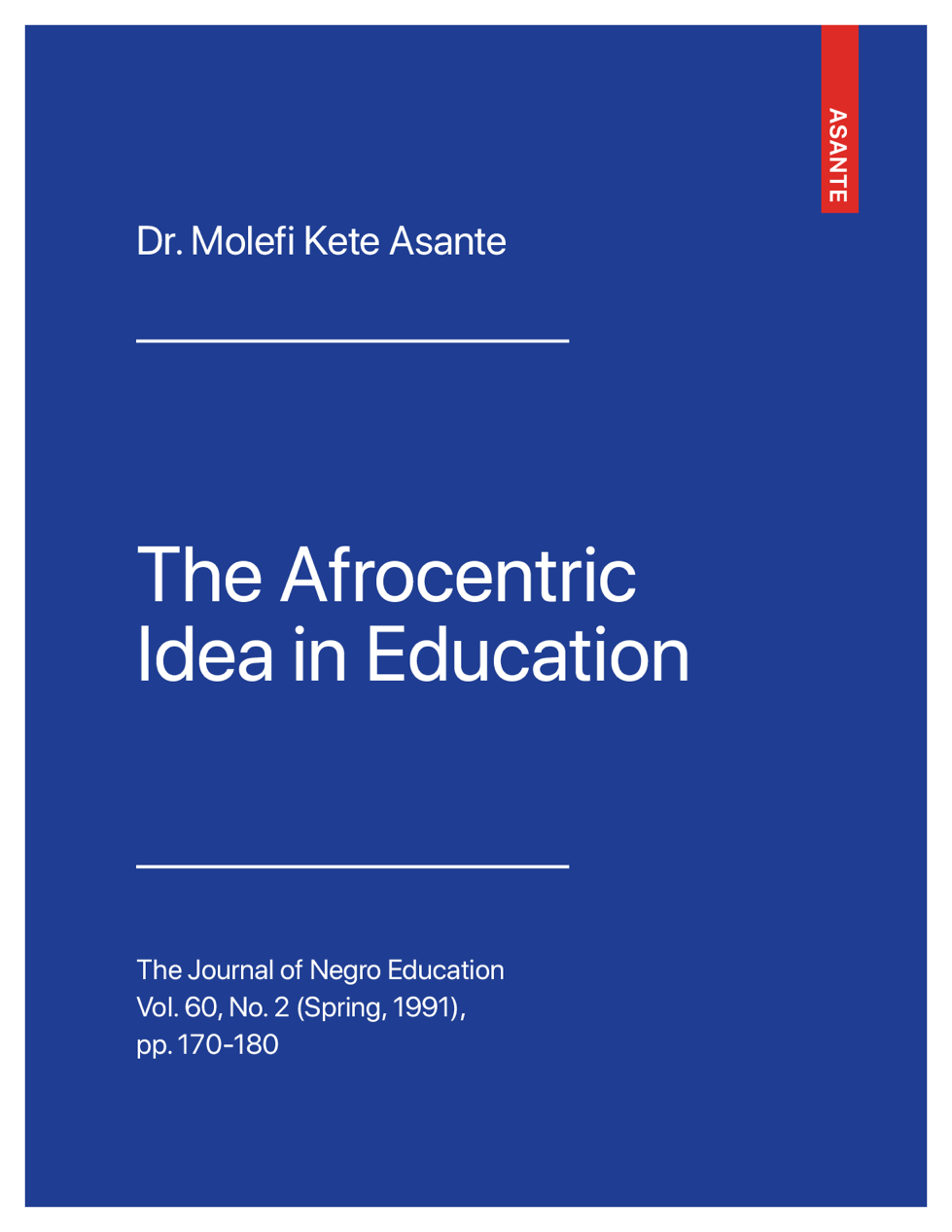The Afrocentric Idea in Education
by Molefi Kete Asante
The Journal of Negro Education, Vol. 60, No. 2 (Spring, 1991), pp. 170-180
Excerpt
Many of the principles that govern the development of the Afrocentric idea in education were first established by Carter G. Woodson in The Mis-education of the Negro (1933). Indeed, Woodson's classic reveals the fundamental problems pertaining to the education of the African person in America.
As Woodson contends, African Americans have been educated away from their own culture and traditions and attached to the fringes of European culture; thus dislocated from themselves, Woodson asserts that African Americans often valorize European culture to the detriment of their own heritage (p. 7).
Although Woodson does not advocate rejection of American citizenship or nationality, he believed that assuming African Americans hold the same position as European Americans vis-a-vis the realities of America would lead to the psychological and cultural death of the African American population.
Furthermore, if education is ever to be substantive and meaningful within the context of American society, Woodson argues, it must first address the African's historical experiences, both in Africa and America (p. 7). That is why he places on education, and particularly on the traditionally African American colleges, the burden of teaching the African American to be responsive to the long traditions and history of Africa as well as America.
Woodson's alert recognition, more than 50 years ago, that something is severely wrong with the way African Americans are educated provides the principal impetus for the Afrocentric approach to American education. In this article I will examine the nature and scope of this approach, establish its necessity, and suggest ways to develop and disseminate it throughout all levels of education.
Two propositions stand in the background of the theoretical and philosophical issues I will present. These ideas represent the core presuppositions on which I have based most of my work in the field of education, and they suggest the direction of my own thinking about what education is capable of doing to and for an already politically and economically marginalized people-African Americans: (1) Education is fundamentally a social phenomenon whose ultimate purpose is to socialize the learner; to send a child to school is to prepare that child to become part of a social group. (2) Schools are reflective of the societies that develop them (i.e., a White supremacist-dominated society will develop a White supremacist educational system).
You might also be interested in:
The History of Africa
Being Human Being
100 Greatest African Americans



